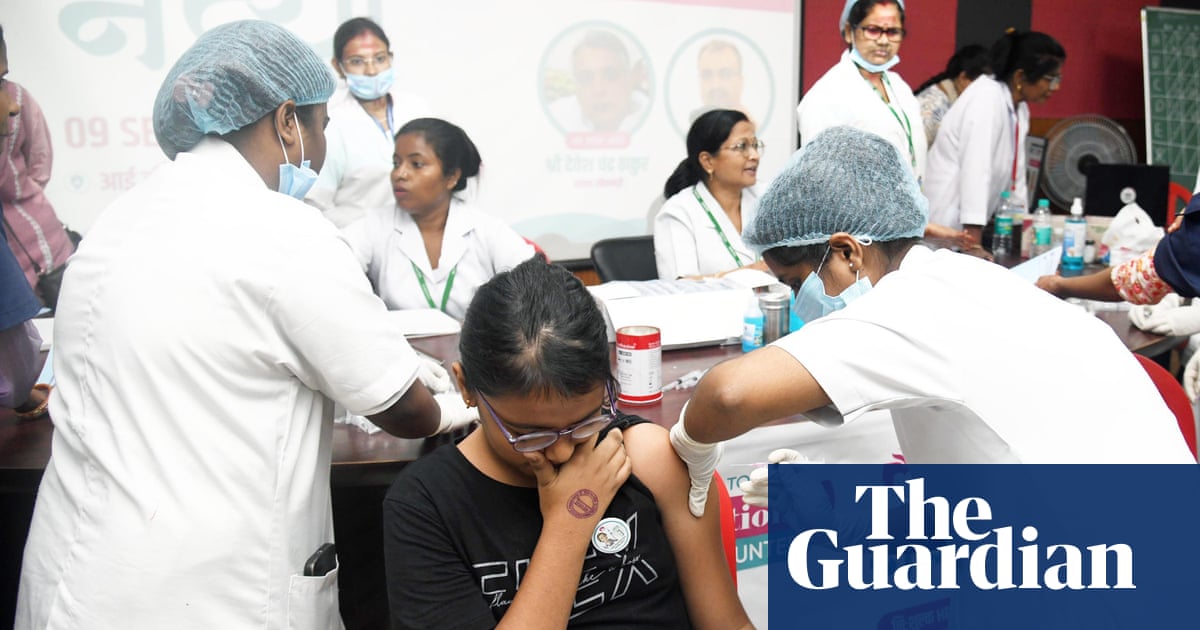India Trains Thousands of Health Directorates to encourage vaccination in a major edition to end the Rahim Cankası | Global development

Tens of thousands of doctors in India are trained to encourage HPV vaccine to eliminate cervical cancer in the country.
They will meet with mothers who participate in the medical appointments they want to instill in their daughters and visit schools and community centers equipped with facts and slide shows to resist the vaccine disinformation.
Five -fifth Cases of cervical cancer worldwide It occurs in India – and overwhelming majority One of them is caused by papillomavirus or HPV.
HPV vaccine has become routine applications in many countries and Existing specially in India Since 2008, but with low purchase.
Sutapa Biswas, the founding partner of the Indian Cancer Foundation, said that imported vaccines are expensive and people are reluctant to spend money for prevention. False information surrounding deaths The authority said he left with a “baggage” during a HPV vaccine attempt in the country.
However, India has recently started to produce its own cervical cancer vaccine and the government Expected Later in this year or in the early next year, it is a part of the national vaccination program.
Biswas said it was annoying to know that a vaccine was present but it was not used. “Many times [we would hear] All kinds of excuses – ‘the cost is too high, we cannot vaccinate’. However, the cost of treating cancer is much higher. “
Now he said: “Everything is unite and we want to take advantage of this opportunity in the best way. We also protect the pressure on the government so that we do not miss this chance.”
Last year, about 11,000 members of the Indian Obstetric and Gynecology Associations (Fogsi) virtual training. Approximately 100 of these trainees have now become the National HPV Faculty, and each of them will train 500 general doctors from the Indian Medical Association for the next six months.
Biswas, “Trust is to create,” he said. Education, practical information about dosages, includes details of the pressure of the World Health Organization. Eliminate cervical cancerAnd advice on how to answer common questions.
Implementation of India’s cervical screening program it was sluggagehe said. Most cancer is diagnosed late, and most people’s experiences are related to death.
Biswas, many non -expert doctors, “a cancer could be eliminated and vaccination could not even know that such a gamechanger,” he said.
After training, doctors are asked to approach their communities in their local languages to make short presentations.
Biswas, Covid-19 pandemia and associated vaccination campaigns helped-even in less educated rural communities, people now understood the connection between viruses and vaccines. “Now, while talking in the community, [explain] There is a virus that causes cervical cancer – so we are here, we have vaccination. “
Education was presented separately to local non -governmental organizations, “How to understand this and you will talk about it because you do not recoil,” he said.
Gynecologist and Cancer Specialist Priya Ganeshkumar led the project in Fogsi, said gynecologists were well placed to make advocacy work.
Families often returned to the doctor who surrendered their babies when their daughters began to periods or in subsequent pregnancies, so he said, “We have a lot of scope to talk about this vaccine.” “She lives with her daughter and [we can] Proactively ‘Hey Girl – What is your age?’ Ask the question. [and ask the parent] ‘Have you instilled your child?’ ‘
While many gynecologists are already aware of the HPV vaccine, “Did they stress this?” He asked. He said that the training helps them to understand the importance of raising with patients and not to assume that a pediatrician is a job. The HPV vaccine is typically given to Preteens, most of the childhood vaccine.
Ganeshkumar said the potential was very wide. “We all know about cervical cancer – India is a center of it. Every seven to eight minutes, a lady in India dies because of cervical cancer when it is prevented.”
Cancer Research UK provides about one quarter of the project’s financing. CEO Michelle Mitchell said that “almost no one has developed cervical cancer” is a part of the efforts for the future.




